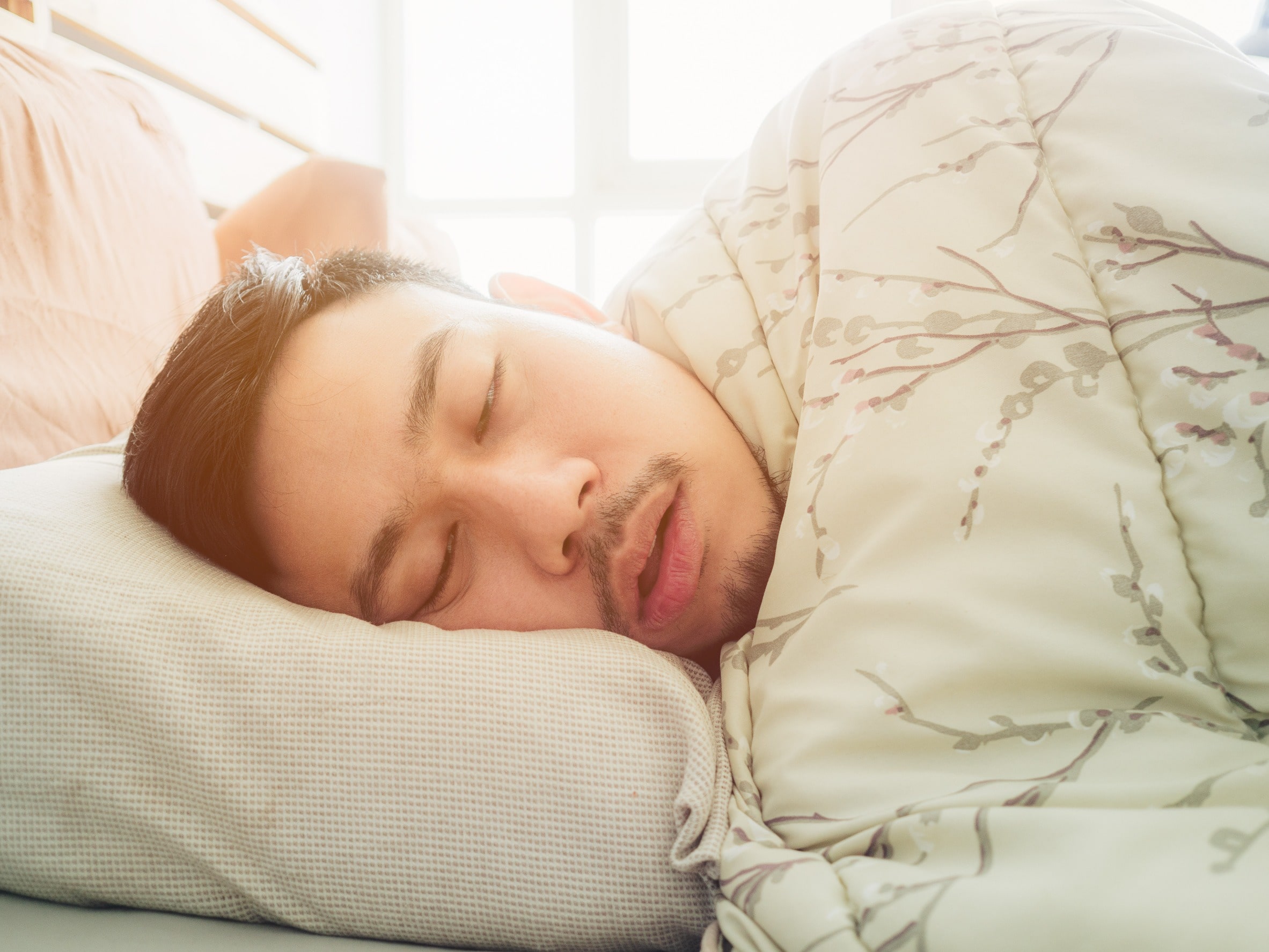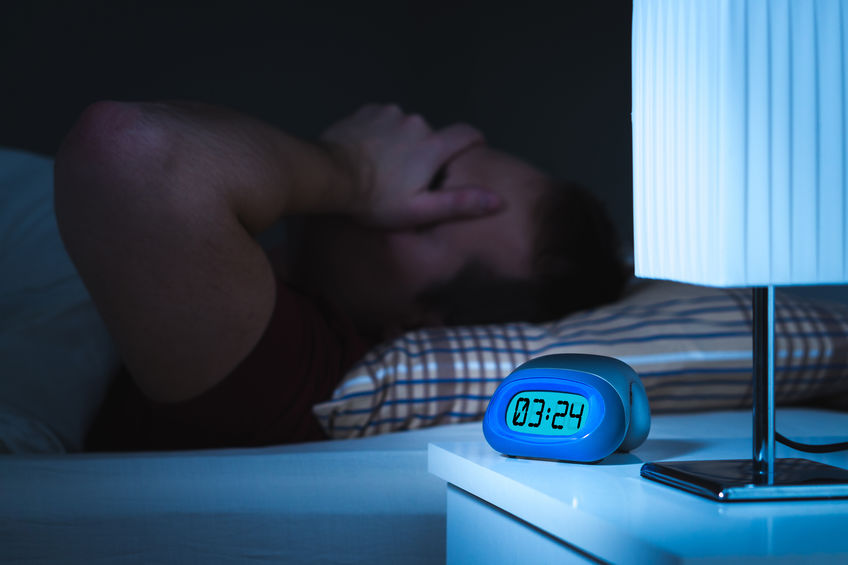Do you have trouble falling asleep or staying asleep? Do you feel sleepy throughout the day? This article will explain the different types of problems that a sleep therapist can help with.
Last updated: March 3rd, 2025
Sleep Therapy: Important Information For You To Know
For the most part, sleep-related difficulties are treatable. Sleep therapy focuses on helping you modify your behavior, thinking, and lifestyle to increase your likelihood of sustained and restful sleep. Sleep therapy is recommended by physicians as the first option for long-term benefit, regardless of whether you use medication or not.
What Is Sleep Therapy?
Sleep therapy comes with many names but most often it is called cognitive behavioral therapy for insomnia (CBT-I). CBT-I is the gold standard of insomnia treatment.
Here are some common recommendations you’re likely to hear from a sleep therapist using CBT-I:
- Maintain consistent wake times in the mornings on weekdays (and no more than an hour later on the weekends).
- Avoid excessive physical activity, caffeine, strong light exposure, and heavy meals close to bedtime.
- Limit alcoholic beverages since alcohol tends to disrupt the quality of asleep (even if you fall asleep more quickly when under the influence).
- Keep your bedroom environment cool and comfortable – and pay attention to whether disruptive pets, snoring partners, or blue light stimulation from your bedroom TV is keeping you up at night.
- Aim for long active days full of mental and physical activity to maximize your metabolic activity.
- Avoid daytime naps.
- And lastly, remember that a healthy sleep range is between 6-8 hours on average for healthy adults. If you believe you need 8-10 hours, it’s possible you need less sleep than you think.
Many of these lifestyle modifications can help improve sleep patterns. If you find that they’re not sufficient, consider speaking with a sleep therapist.
What is a sleep therapist?
A sleep therapist is a trained professional who can assess, evaluate, and treat sleep disorders. They’re able to conduct comprehensive assessments to monitor sleep patterns and implement further interventions as necessary.
Benefits of sleep therapy include being under the care of an expert to improve quantity and quality of sleep in a short time frame. In fact, studies of CBT-I show improvements in symptoms in just a few weeks.
A good sleep therapist will typically do the following:
- Use a designated worksheet to monitor sleep patterns in a structured way.
- Recommend changes to your sleep and wake times to maximize your propensity to fall asleep.
- Address thoughts, emotions, fears, and concerns related to sleep and functioning.
- Tailor sleep interventions to match your needs and lifestyle.
What Are the Most Common Sleep Disorders?
Common sleep disorders include insomnia, parasomnia, sleep apnea, and narcolepsy. There are more sleep disorders out there, but here we will focus on these 4.
- Insomnia – Someone has insomnia if they have trouble falling asleep, staying asleep, or have early-morning awakening on a consistent basis. For example, you might find yourself lying in bed for hours tossing and turning. Or, you might fall asleep quickly but wake up quite a few times in the middle of the night and then have trouble falling back asleep. And lastly, you might consistently wake up before your morning alarm. In all those cases, symptoms of insomnia can lead to irritability, difficulty with attention and concentration, relationship difficulties, and sometimes even impaired work performance.
- Parasomnia– Parasomnia is the term for disrupted sleep due to behaviors or events that happen in sleep. These can include sleepwalking, sleep terrors, eating or talking while partially asleep, and other behaviors. Some behaviors are more common in REM sleep (the stage of sleep when we tend to dream), and others are more common in non-REM sleep. Parasomnia is generally more common in children than adults.
- Sleep apnea – Sleep apnea is a condition when individuals have trouble breathing when asleep. This can lead to brief but frequent awakenings in the middle of the night. Most commonly, this is assessed during a sleep study (either in a sleep clinic or in your own home) that can assess your oxygen levels throughout the night. It is commonly treated with a CPAP machine that improves breathing during sleep, which leads to improved sleep quality.
- Narcolepsy – Narcolepsy is a condition in which people suddenly fall asleep during the day. It is more than “just dozing off.” It is a sudden onset of sleep, is out of control, and tends to impair daily functioning. This condition is typically managed by a medical professional.
Of the disorders listed here, insomnia is the most common. Some estimates contend that up to 50% to 60% of the general population suffers from it!
Insomnia: A Closer Look
Insomnia can be acute (short-term and sudden) or chronic (persistent and long-term).
Acute insomnia can be triggered by normal events that sometimes disrupt sleep. Examples include jet lag from a long flight, worrying about a big exam or work deadline, and so on. Not every case of acute insomnia is a problem that will require treatment. In fact, often, people recover from a few nights or even weeks of disrupted sleep.
However, acute insomnia can develop into chronic insomnia if sleep patterns don’t return to normal within a few weeks. Chronic insomnia is sleep difficulty that occurs three or more nights a week and lasts more than 3 months. It often develops when thoughts, fears, and behaviors cause acute insomnia, or sleep difficulty, to persist. For example, you may find yourself dreading sleep, which can fuel the worry process. Or, in an effort to get more sleep, you might spend too much time in bed, which can actually lead to problems beyond sleep. Left untreated, both acute and chronic insomnia can lead to low mood, impaired work performance, appetite changes, substance abuse, and impaired functioning.
RELATED: 4 Science-Based Sleep Hacks That Will Help You Sleep Better
It’s important to distinguish insomnia from parasomnia. Insomnia is the lack of ability to fall or stay asleep. Parasomnia, as described above, is when behaviors or events interrupt sleep. As such, treatment varies for each.
How Are Sleep Disorders Treated?
Treatment for sleep disorders differs significantly based on the type of sleep disorder. Therefore, the first step in any case would be ensure an accurate diagnosis. You can be evaluated for sleep disorders by doing a sleep study, working with a sleep psychologist, or by seeing a physician at a sleep clinic. These providers often work together to perform diagnostic testing, which may include self-monitoring and a sleep study.
Generally speaking, treatment may include 1) modification of sleep habits or lifestyle changes, 2) for sleep apnea, increasing oxygen levels during sleep (typically with a CPAP machine), or 3) the use of medications to improve sleep and mood. If you have parasomnia, additional measures may be taken to ensure your safety from disruptive events while asleep. These measures include sleeping on the ground floor to avoid falls, clearing your room of hazardous items to avoid tripping, or adding locks and alarms to windows or doors.
Importantly, the primary treatment for insomnia, and some other sleep disorders, is CBT-I. CBT-I emphasizes, among other things, regular sleep and wake times, limited time in bed, consistent sleep hygiene, and structured ways of managing middle-of-the-night awakenings.
Cognitive Behavioral Therapy For Insomnia (CBT-I)
As mentioned above, CBT-I is beneficial for many sleep disorders. However, it was originally developed for the treatment of insomnia. Insomnia often results from 1) general anxiety or sleep-related anxiety or 2) spending too much time in bed.
CBT-I techniques to improve your sleep habits
To address sleep anxiety, CBT-I provides information about sleep and addresses specific and relevant worries. To manage time in bed, CBT-I uses a method called stimulus control, which would require you to leave the bed and do a relaxing activity if you’re having trouble falling asleep for more than 30 minutes, whether at the start of the night or in the middle of the night. The rationale for this technique is that the bed should associated with rest and sleep, rather than with an aroused state, to strengthen that sleep association. CBT-I also adjusts bedtimes and wake times to limit your time in bed to only when you are sleeping. This is called maximizing sleep efficiency and is consistent with stimulus control.
In addition to these main techniques, CBT-I focuses on other concepts as well. One is called paradoxical intention, which means the harder we try to sleep, the less likely we are to sleep. In other words, we can’t “will” sleep to come. This concept would encourage you to practice acceptance of normal fluctuations in sleep patterns over the lifespan so that we “try less” to fall asleep and allow sleep to come and go naturally. Another concept discussed in CBT-I is the idea of maximizing our mental and physical activity during the daytime to increase our propensity to fall asleep at night. Additionally, you and your sleep therapist will monitor disruptive behaviors during the day that may interfere with sleep at night, such as napping too long, excessive caffeine and alcohol consumption, and inconsistent bed and rise times. This is part of good “sleep hygiene.”
CBT-I and sleep medication
CBT-I can often help you become less reliant on sleep medications, if that’s a goal of yours. Studies show that sleep medications may be helpful in the short-term for those struggling with insomnia but are typically not recommended for long-term use.
Summary
If you are struggling with sleep difficulty of any kind, consider meeting with a professional (a sleep therapist or a physician specializing in sleep) to undergo testing and attain an accurate diagnosis. Depending on your specific sleep difficulty, you may want to work with a sleep psychologist who is trained in CBT-I to improve your ability to fall and stay asleep.
Sleep Therapist Frequently Asked Questions (FAQs)
How long does it take for a person to fall asleep?
On average, it should take someone twenty to forty minutes to fall asleep. If you still can’t sleep after forty minutes, try doing a relaxing activity out of bed and then return to bed when you get sleepy.
Who is most likely to get insomnia?
You are more likely to suffer from insomnia if you focus too much on the number of hours of sleep you’re getting or if you dread sleep. If you stay in bed for a long time when you can’t sleep, you’re more likely to get insomnia. If you are inactive during the day, your risk for insomnia goes up. These are some of the most common risk factors.
Is a sleep disorder a mental illness?
Primary insomnia disorder is a diagnosis in the Diagnostic and Statistical Manual (DSM). However, it is often treated using a behavioral approach and shows good outcomes.
What triggers insomnia?
Normal life events can trigger brief difficulty in falling asleep – sleep disruption from jet lag, conflict with a loved one, worry about job performance. Not every night or nights of poor sleep is insomnia or can lead to insomnia.
How long does CBT for insomnia take to work?
CBT-I has been shown to improve ability to fall asleep, stay asleep, and improve sleep quality in a few weeks.
Where can I find a sleep therapist near me?
Finding a sleep therapist with training in CBT-I can be challenging. One resource is this listing of trained providers on the University of Pennsylvania website. Another is the clinical directory at the website of the Association of Behavioral and Cognitive Therapies. If you’re in New York, New Jersey, Massachusetts, Vermont, Virginia, or Florida, contact us and speak to our intake coordinator about scheduling an initial evaluation.










